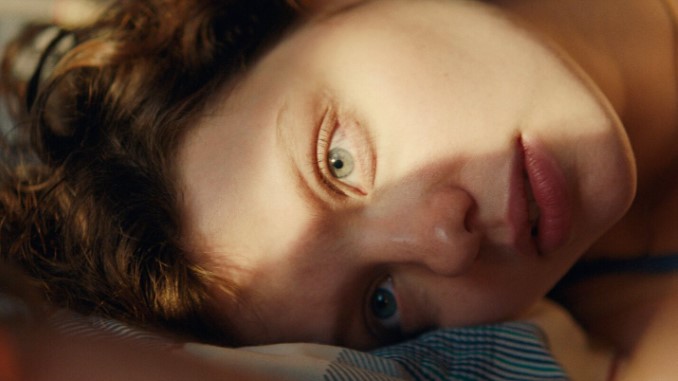Somnium Is an Overstuffed Genre Mishmash Saved by Compelling Performances

There’s a quality often shared by directorial debuts, in which the filmmaker has seemingly convinced himself or herself that they need to mine every single part of their personal experience in making the project, synthesizing everything that has made them into the person they are today into one grand work of art that will justify the entire road they’ve walked to this point. This sometimes misplaced “no stone left unturned” mentality can end up resulting in debut films that become overstuffed with incongruous ideas and elements that work directly against one another, left firmly rooted in place by a filmmaker who is unwilling to compromise and streamline their so-very-important visionary debut into a more harmonious whole. For writer-director Racheal Cain’s Somnium, this desire for expansive storytelling across numerous genres and tones becomes the biggest pitfall to be overcome, and the quirky fusion of psychological drama, sci-fi and horror sometimes teeters on the brink of absurdity as a result. But its winning performances, impressive low-budget production design and sincere storytelling manage to keep Somnium engaging even when things get messy and threaten to leap the guard rails. There’s some impressive filmmaking going on here, though you may need to squint a bit to make it out.
Somnium promises to revolve around topics such as sleep and dreams, and although it is indeed fixated on the latter, it’s not the literal kind of dreaming we do while asleep that captivates Cain. She is instead more focused on “dreams” in the sense of the word as aspirations, conscious or unbidden. This is a story about what we’re willing to sacrifice for our dreams, how pursuing them can cost our souls, how predators take advantage of sincerity, and how a person might manage to rise above while finding worth and affirmation in the more mundane moments of daily existence.
It’s also quite a familiar feeling setup, on multiple levels, with echoes of several of our favorite indie horror titles of recent years. The pursuit of “stardom” in Hollywood for protagonist Gemma (Chloë Levine, effortlessly sweet but diffident) obviously echoes the likes of Pearl or Maxxxine, although it’s 2014’s disturbingly effective Starry Eyes that feels like a more perfectly apt comparison, given the way this film also plumbs the crushing experience of a fresh-faced young actress walking into an audition to be studied like a piece of meat. The introduction of a sci-fi horror premise revolving around a sleep study clinic with the ability to influence dreams, meanwhile, is very evocative of 2021’s Come True, which revolved around similar fictional technology. Compared with all of them, however, Somnium is much less committed to fright or disturbing its audience in a Cronenbergian fashion–this is more like a genre movie that is surveilling an indie drama from a distance while staying mostly out of sight. It may make use of some horror imagery, and finally embrace the sci-fi mechanic in its third act, but the heart of Somnium is a really nicely performed drama about a young woman leaving behind heartbreak, attempting to ambitiously reset her life while being tugged by the temptation to admit defeat, to crawl back to the more supportive social circle she once possessed and beg to be readmitted to a more comfortably safe world. This film’s struggle occurs almost entirely within Gemma’s mind and emotions.
That’s fortunate for Somnium, in the sense that lead actress Chloë Levine turns in exactly the sort of vulnerable protagonist performance that is needed here. She needs to be optimistic and naive to some degree to make the trek from Georgia to Hollywood, believing beyond belief that her story will be different from the thousands of other girls who do the same thing every year. Gemma is pretty but gawky, all curls and teeth and southern drawl, constantly walking into casting agencies and being turned down by blonde talent scouts who look more like Hollywood actresses than she does. That should probably be a sign to be picked up on, but she’s still fresh enough to convince herself that if she just leaves enough resumes or headshots around, she’ll eventually get a chance to prove herself. The way she stares at what she wants, however, her eyes a bit too wide and astounded by whatever she sees, indicates that Gemma is too unguarded and easily read for this place; her gratitude for any small nicety is a clear inroads for manipulation. Her appearance screams: “I have the capacity for self delusion.” In a way, the performance reminds me a bit of Lea Myren in the titular role of Emilie Blichfeldt’s The Ugly Stepsister, requiring some of the same fearless willingness to combine sympathy and disgust, although Somnium doesn’t take things nearly so far in the direction of the latter.
-

-

-

-

-

-

-

-

-

-

-

-

-

-

-

-

-

-

-

-

-

-

-

-

-

-

-

-

-

-

-

-

-

-

-

-

-

-

-

-








































